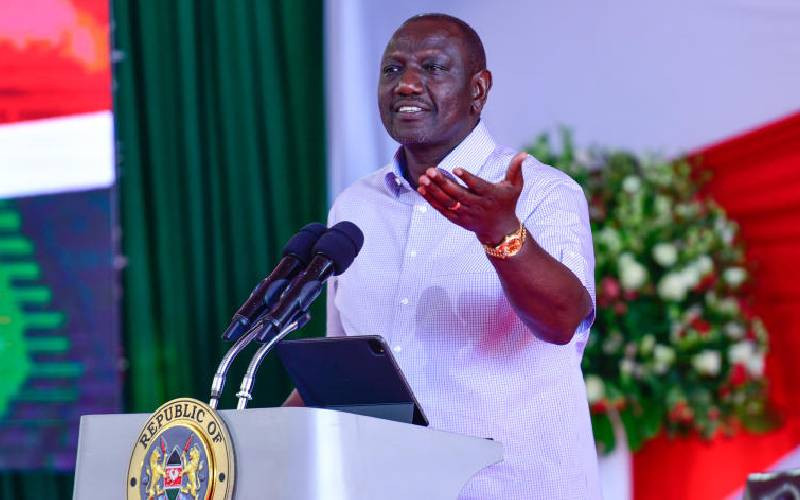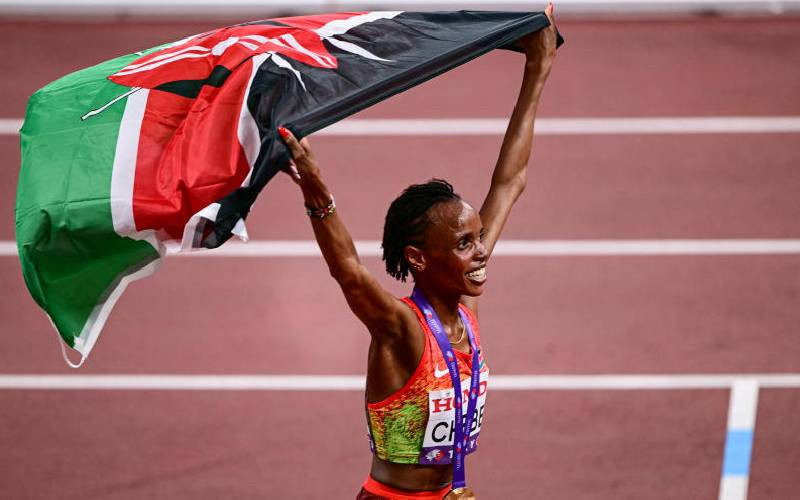×
The Standard e-Paper
Home To Bold Columnists

President William Ruto speaks at Fairmont Mount Kenya Safari Club, Laikipia County. [PPS]
President William Ruto's interview to the nation is a double-edged sword: Opens a lid into the thinking of his government as well as exposes its failure.
